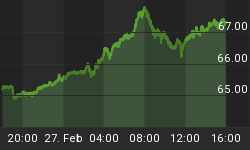
The ability of a business to maintain accurate and meaningful accounts is undermined by the debasement of the accounting medium, fiat currency. Understand this and you understand the corrosive effects of weak money.
This important subject receives almost no attention. Instead it is argued that a weak currency can stimulate exports and therefore business. Cynical neo-classical economists see monetary debasement as a means of robbing savers and wage-earners without them noticing, to achieve a statist objective without apparent pain. The self-interested justification for this theft of individuals' property has been elevated to an art-form involving obfuscating statistics, as well as clouding economic issues with concepts of fairness, morality and politics.
The result is to render accounts meaningless. The currency unit of today is not the same as that of a year ago. We look at the accounts of an American corporation, tracking the company's progress over the last five years, but we cannot adjust reported dollars for the fact that over this time-scale there is now more than twice the quantity of dollars in circulation. And how can we be sure that depreciation is sufficient to allow for the purchase of new manufacturing equipment, taking into account the depreciation of the dollar itself?
There is the added problem that fiat currencies depend totally upon confidence that they actually have value, and because confidence is an unpredictable variable, there is no knowing what their value will be at any time in the future. This for a manufacturer makes calculating future prices and costs of production meaningless. In an ephemeral business like retailing, this is not too much of a problem, because lead times between ordering stock and selling it are very short. But for manufacturers of complex items, who have to organise the design, technology, plant and equipment, sourcing and transformation of raw materials, altogether perhaps taking ten or more years, it is an insurmountable task. During that time a western economy based on a weak fiat currency will have undergone at least one, possibly two boom-and-bust cycles.
This is why there is so much emphasis on retailing. And it is hardly surprising that businesses based in countries with weak fiat currencies have moved their manufacturing activities offshore, where cheap hard-working labour is available and lead times to production are shorter. A common mistake is to attribute this off-shoring only to cheap labour; but this ignores the first preference of any business to maintain its operations in its home country, and it ignores the remarkable success of manufacturing businesses based in hard currencies, such as the German mark or Japanese yen before 1990. The one thing that the Mittelstand and the keiretsu had was a relatively stable basis for economic calculation.
The absence of this basis is at the heart of the destruction of manufacturing. It is the result of subscribing to the myth that money and credit can be created at will without economic cost. In countries like the UK manufacturing has given way to financial services; hardly surprising when banking and bankers are first in line for the newly-printed currency.
This is not even properly understood by businessmen, lobbying for "competitive currencies", or subsidies that are ultimately funded through currency debasement. But it is the absence of a sound basis for economic calculation more than anything else which has ultimately destroyed manufacturing industry.















